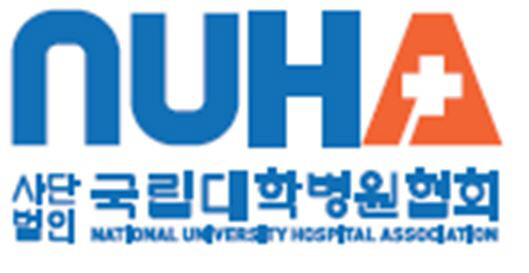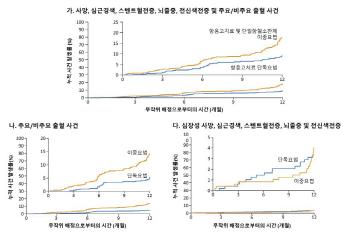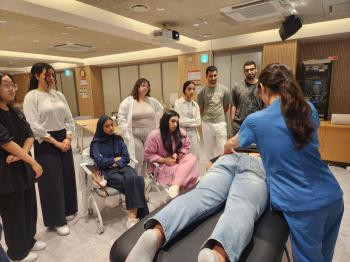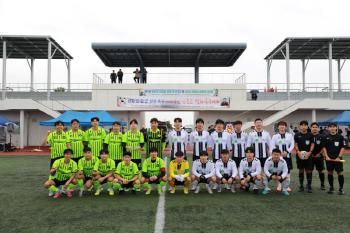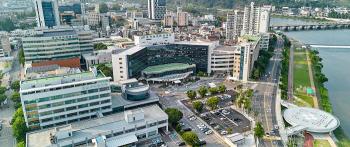4 out of 5 professors at the National University Hospital oppose the transfer of ministries...I don't understand what's going on
Nov 10, 2025
While the Ministry of Health and Welfare is pushing for the 'transfer of ministries' to nine national university hospitals as part of the national task, four out of five professors at the National University Hospital oppose it, according to a survey.
According to a survey conducted by pollster Embrain Public on professors of nine regional national university hospitals, including Kangwon National University, Kyungpook National University, Kyungpook National University, Kyungpook National University, Pusan National University, Chonbuk National University, Jeju National University, Chungnam National University, and Chungbuk National University on Nov. 4-6, 20.1% approved and 79.9% opposed the transfer.
This is an increase of about 7 percentage points in the number of dissenting respondents compared to 73 percent in the first survey conducted in September. The results of the survey are noteworthy in that it is an indicator that can directly confirm the thoughts and positions of hospital professors, who are the direct targets of the transfer of ministries and the main players in charge of essential public medical care in the region, while the government-ruling party and ruling party confirmed the policy of transferring ministries within this year.
Professor Han, who attended a briefing session on professors at the National University Hospital co-hosted by the Ministry of Health and Welfare and the Ministry of Education, said, "It is quite embarrassing to hear that the Ministry of Health and Welfare has decided to transfer to the Ministry of Health and Welfare by the end of this year through an agreement between the ruling party and the government, while holding on-site briefing sessions for professors at the National University Hospital and the National University Hospital." He added, "We postponed the meeting and attended the briefing session. To strengthen essential medical care in the region, a transfer of ministries is essential. It is close to a one-sided explanation that more support can.
Professors at the National University Hospital cited concerns about shrinking educational and research capabilities and the absence of an effective mid- to long-term comprehensive plan and roadmap for strengthening essential public health care in the region as the main reasons for opposition. In particular, a number of professors said they opposed the discussion after transferring in advance within the year without sufficient discussion and agreement.
Cho Kang-hee, president of Chungnam National University Hospital who co-chairs the 'Regional Essential Medical Enhancement Consultative Body' involving the Ministry of Health and Welfare, the Ministry of Education and the National University Hospital, said, `The transfer of government ministries is a major public affair in which nine national university hospitals and 40,000 employees change their affiliation, and it is hard to understand that we will make it a quick decision within three months of finalizing the national task.'"As essential medical care is an area that requires high level of expertise, urgency and importance, precise design and establishment of a thoroughly functioning medical service system are very important, Communication and consultation between the government and hospitals are needed, but I am at a loss as to how I can convince the medical staff to transfer to a situation where a consultative body has just been formed and is just starting a 'diplomatic dialogue.'"
At the parliamentary audit of the Ministry of Health and Welfare on October 14, Minister Jung Eun-kyung "Currently drawing up a comprehensive roadmap plan to expand the region and essential medical care."The key strategy for strengthening regional medical care is to increase the treatment capacity of the National University Hospital to the level of 'Big 5' to expand the capacity of the National University Hospital to completely conduct severe and emergency treatment in the region."
While no comprehensive plan or roadmap has been presented to strengthen essential medical care in the region and strengthen the Big Five capabilities of national university hospitals for a month after the minister's answer, attention is being paid to whether there will be any change in the ministry's transfer policy agreed between the government and the government at a time when public opinion against the transfer of national university hospitals is rising.
According to a survey conducted by pollster Embrain Public on professors of nine regional national university hospitals, including Kangwon National University, Kyungpook National University, Kyungpook National University, Kyungpook National University, Pusan National University, Chonbuk National University, Jeju National University, Chungnam National University, and Chungbuk National University on Nov. 4-6, 20.1% approved and 79.9% opposed the transfer.
This is an increase of about 7 percentage points in the number of dissenting respondents compared to 73 percent in the first survey conducted in September. The results of the survey are noteworthy in that it is an indicator that can directly confirm the thoughts and positions of hospital professors, who are the direct targets of the transfer of ministries and the main players in charge of essential public medical care in the region, while the government-ruling party and ruling party confirmed the policy of transferring ministries within this year.
Professor Han, who attended a briefing session on professors at the National University Hospital co-hosted by the Ministry of Health and Welfare and the Ministry of Education, said, "It is quite embarrassing to hear that the Ministry of Health and Welfare has decided to transfer to the Ministry of Health and Welfare by the end of this year through an agreement between the ruling party and the government, while holding on-site briefing sessions for professors at the National University Hospital and the National University Hospital." He added, "We postponed the meeting and attended the briefing session. To strengthen essential medical care in the region, a transfer of ministries is essential. It is close to a one-sided explanation that more support can.
Professors at the National University Hospital cited concerns about shrinking educational and research capabilities and the absence of an effective mid- to long-term comprehensive plan and roadmap for strengthening essential public health care in the region as the main reasons for opposition. In particular, a number of professors said they opposed the discussion after transferring in advance within the year without sufficient discussion and agreement.
Cho Kang-hee, president of Chungnam National University Hospital who co-chairs the 'Regional Essential Medical Enhancement Consultative Body' involving the Ministry of Health and Welfare, the Ministry of Education and the National University Hospital, said, `The transfer of government ministries is a major public affair in which nine national university hospitals and 40,000 employees change their affiliation, and it is hard to understand that we will make it a quick decision within three months of finalizing the national task.'"As essential medical care is an area that requires high level of expertise, urgency and importance, precise design and establishment of a thoroughly functioning medical service system are very important, Communication and consultation between the government and hospitals are needed, but I am at a loss as to how I can convince the medical staff to transfer to a situation where a consultative body has just been formed and is just starting a 'diplomatic dialogue.'"
At the parliamentary audit of the Ministry of Health and Welfare on October 14, Minister Jung Eun-kyung "Currently drawing up a comprehensive roadmap plan to expand the region and essential medical care."The key strategy for strengthening regional medical care is to increase the treatment capacity of the National University Hospital to the level of 'Big 5' to expand the capacity of the National University Hospital to completely conduct severe and emergency treatment in the region."
While no comprehensive plan or roadmap has been presented to strengthen essential medical care in the region and strengthen the Big Five capabilities of national university hospitals for a month after the minister's answer, attention is being paid to whether there will be any change in the ministry's transfer policy agreed between the government and the government at a time when public opinion against the transfer of national university hospitals is rising.
|
This article was translated by Naver AI translator.
